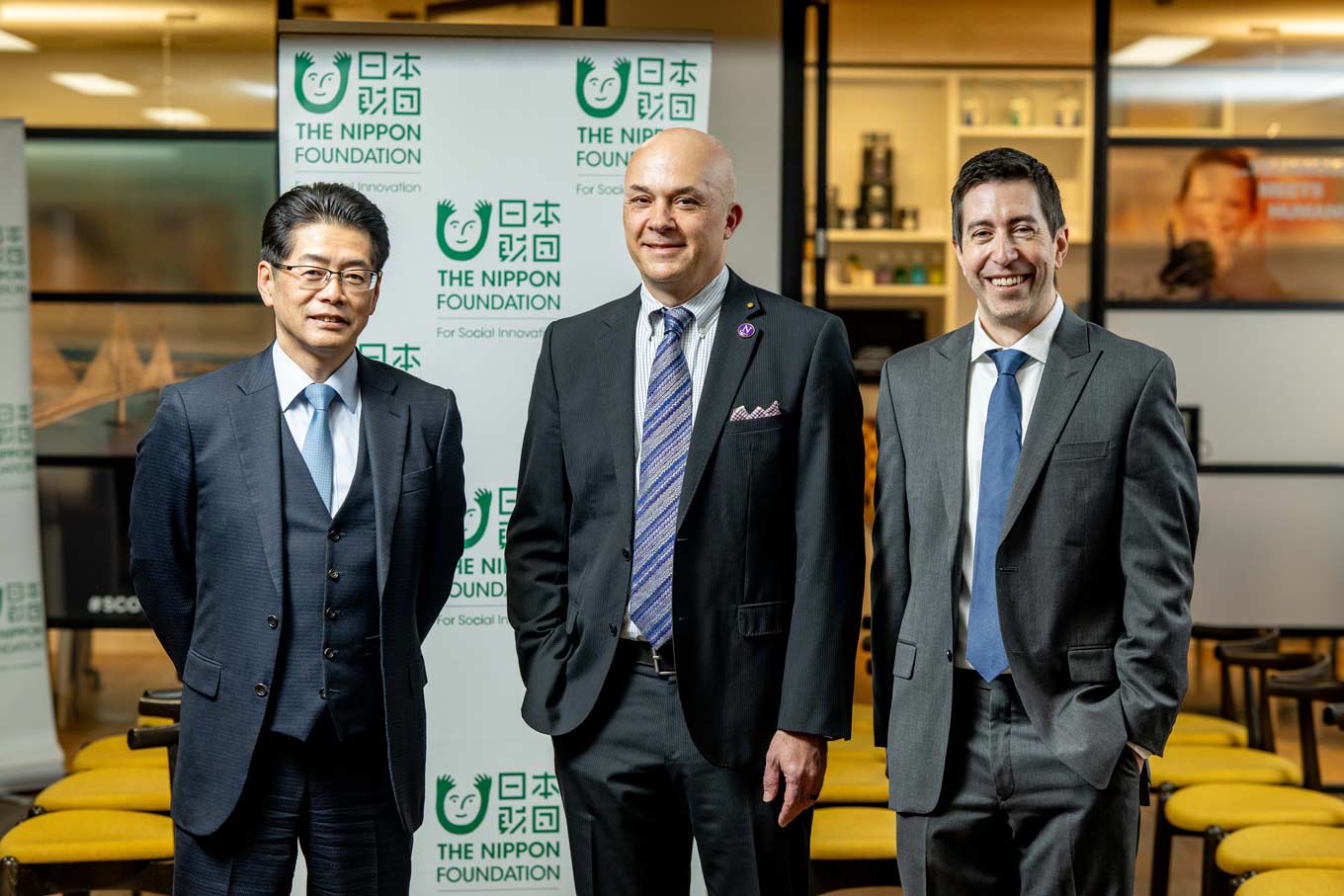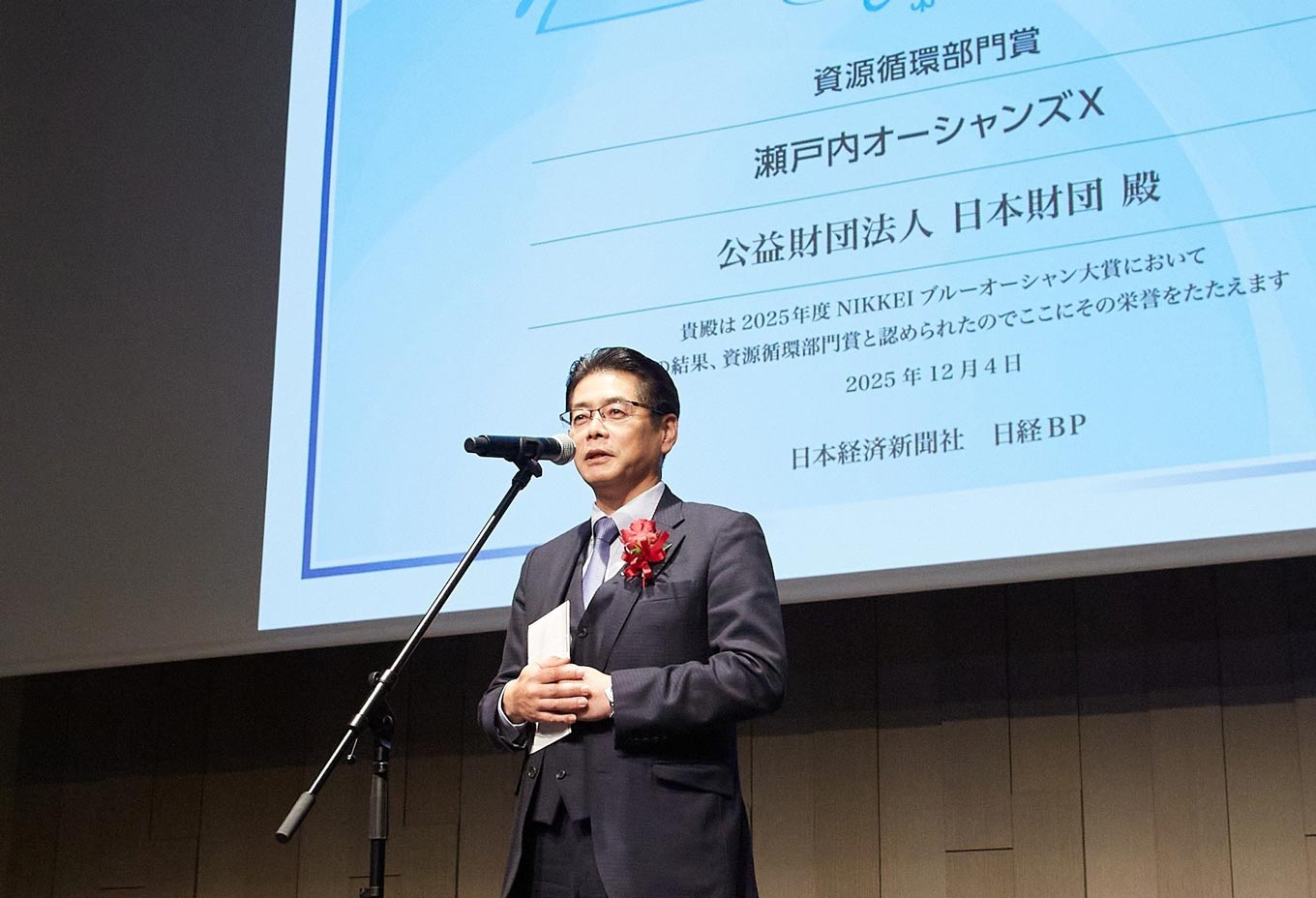Briefing on Support for Evacuees From Ukraine3 years since invasion, evacuees discuss current life in Japan
With three years having passed since Russia’s February 24, 2022, invasion of Ukraine, The Nippon Foundation held a briefing on February 19 on the current situation for evacuees receiving support for living expenses and other items and the outlook going forward. The briefing included a report on the analysis of results of a survey of evacuees receiving support, and three of those people spoke about their current lives in Japan and future plans.
The Nippon Foundation will continue to provide support that is closely aligned with evacuees’ daily lives, with the experience gained over the past three years to be reflected in future activities. The urgent support for daily living will be phased out on an individual basis based on the timing of each person’s arrival in Japan, but the Foundation plans to continue to provide support for Japanese language education and employment, as well as mental health support, for non-Japanese people including evacuees from Ukraine.
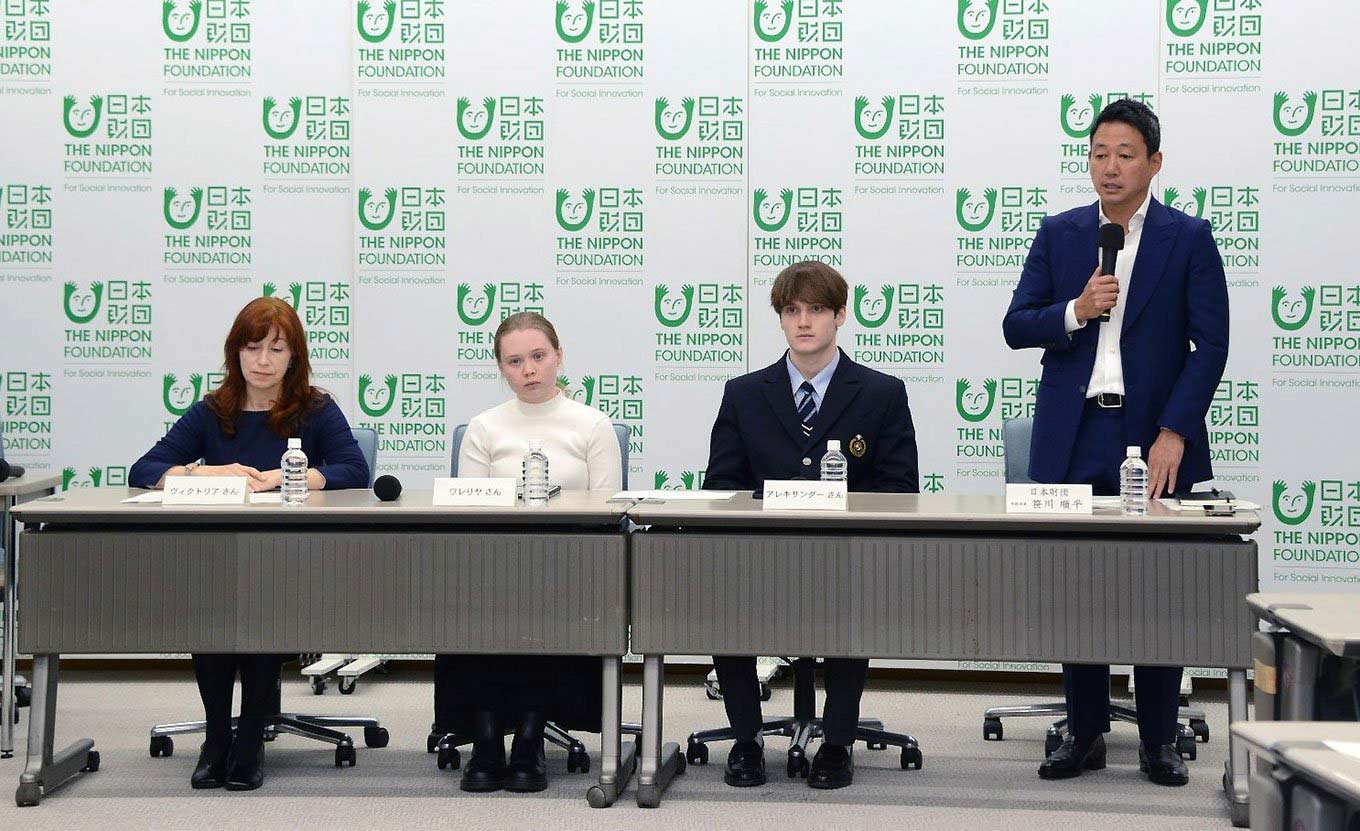
Overview of support to date
Who are the evacuees receiving support from The Nippon Foundation?
1. Characteristics
- Precondition: The person has a guarantor in Japan (family member living in Japan since before the invasion, educational institution, etc.)
- Reason for choosing Japan: “Family member was living in Japan,” “Want to study in Japan,” or “Interest in Japan”
- Gender: Roughly 80% are women (there are restrictions on adult men leaving the country)
- Age: Roughly half are in their 20s or younger
- Work experience in Ukraine: A high percentage have graduate degrees, and many worked in professional or design-related fields
2. Emergency humanitarian support in Japan over past three years
- Support from The Nippon Foundation has included financial support including support for daily living expenses and travel expenses to return to Ukraine, support for employment through NGOs and other organizations, Japanese language education, and consultation services.
- Support from local governments has included free housing.
- Support from guarantors already living in Japan has included support for daily living.
3. Current status
- Many model cases of evacuees living as part of their local community have emerged.
- Of adults (ages 18-64) and excluding students, 80% are employed.
- Roughly 30% have left Japan and their support has concluded.
* Reasons include wanting to return to Ukraine and be reunited with family, and wanting to work or study in Ukraine. - Of the remaining roughly 70%, roughly 70% wish to remain in Japan for an extended period of time.
4. Future outlook
- Evacuees will be classified as those who wish to remain in Japan and those who wish to return to Ukraine.
- For those who wish to remain in Japan, support for things including employment and Japanese language education will continue.
* Support for daily living expenses will be phased out in stages. - For those who wish to return to Ukraine, support for returning to Ukraine will continue.
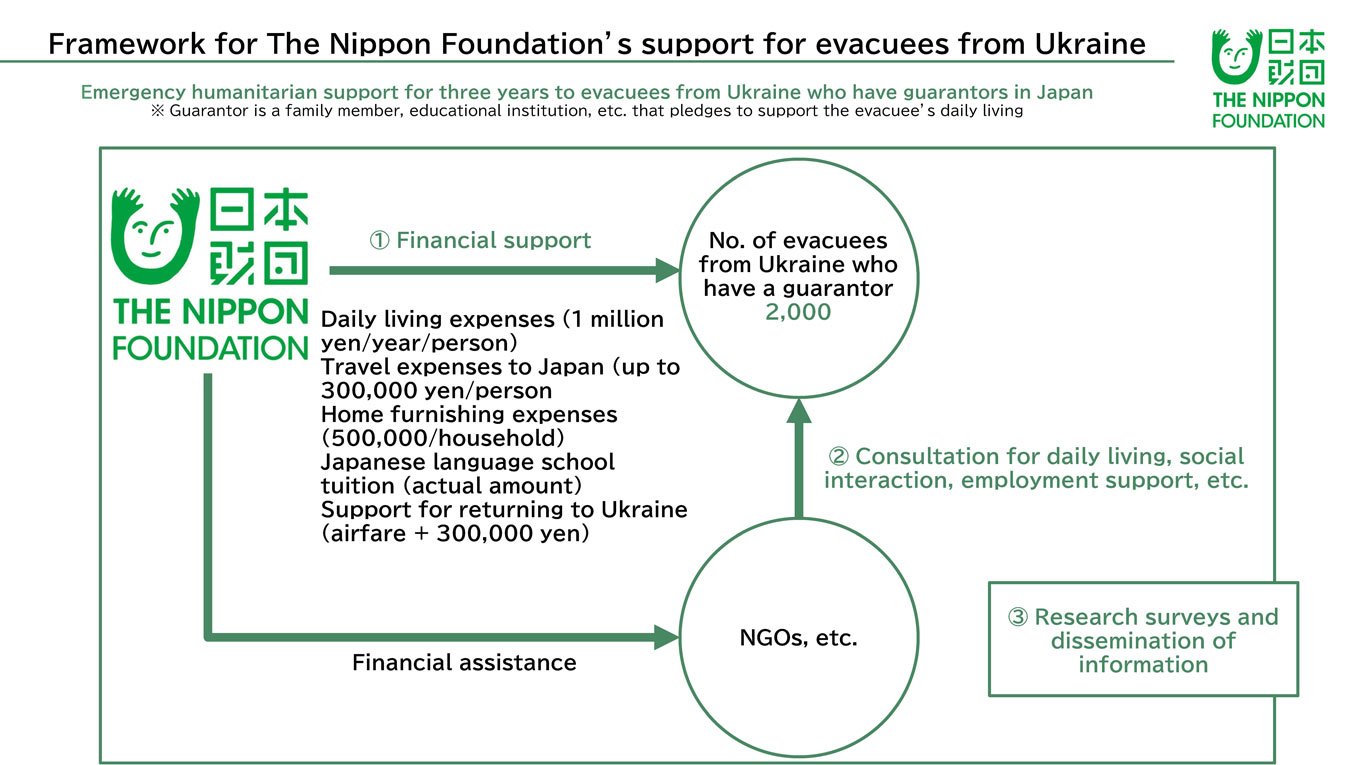
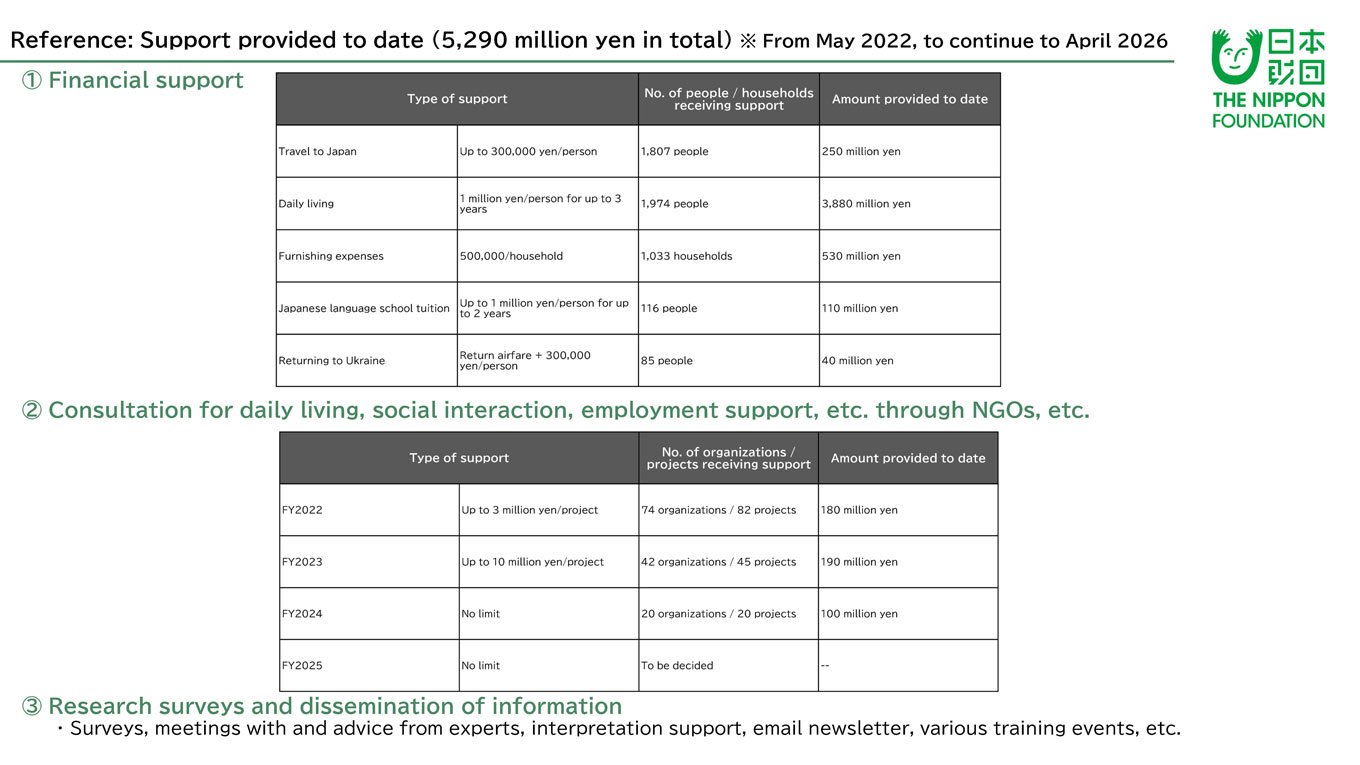
Comments from 3 evacuees from Ukraine
Oleksandr Samarukha
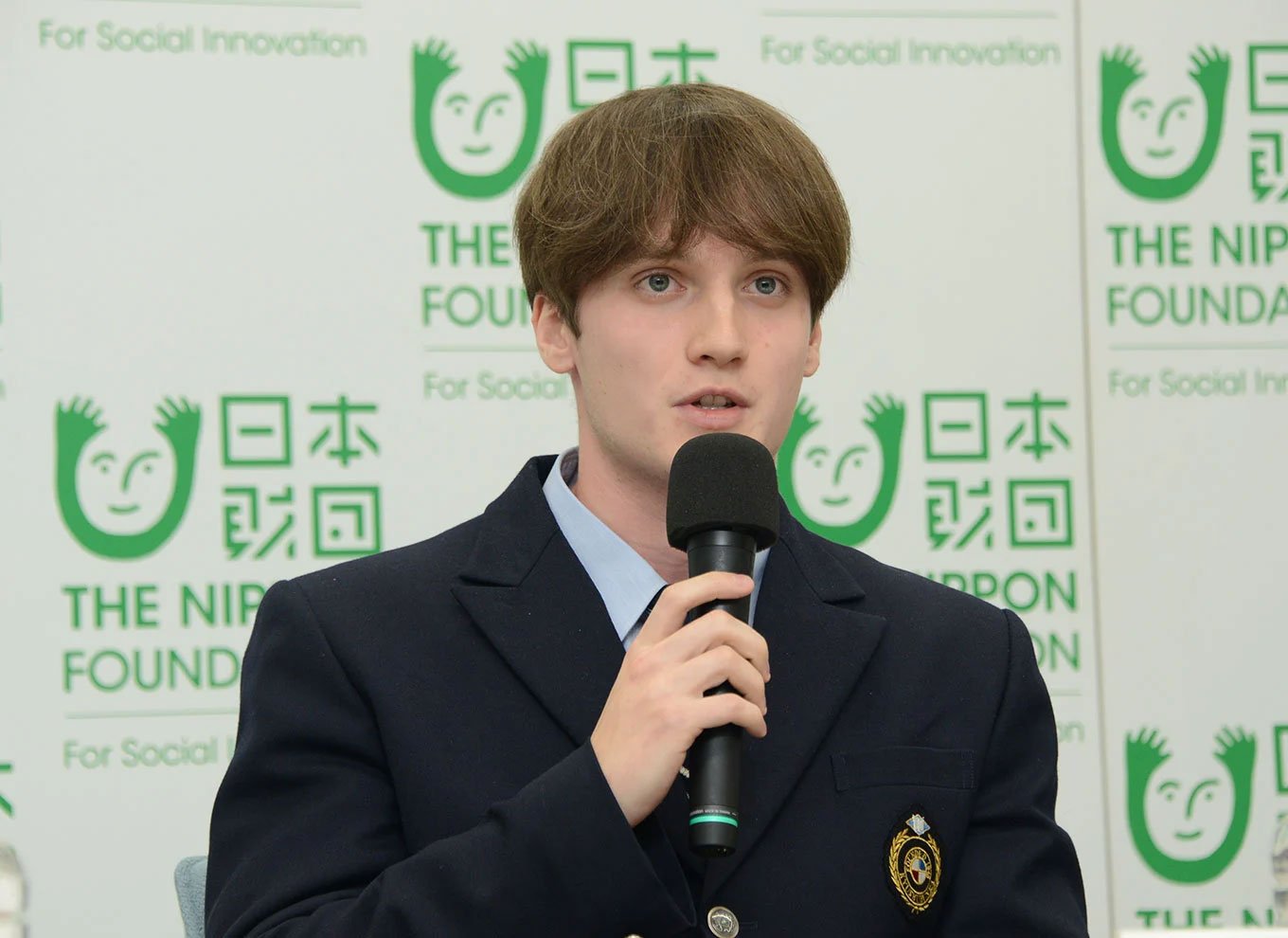
I am currently a third-year student at a high school in Nagasaki Prefecture, and plan to graduate in March.
I have been living in Japan since arriving in June 2022 with my mother, grandmother, and younger sister. When I first arrived, I did not understand any Japanese and had difficulty doing things like shopping and buying train tickets. However, I started attending a Japanese language school from August 2022 and studied Japanese very hard for about six months, and was able to pass the N4 level of the Japanese-Language Proficiency Test (the level that indicates the ability to understand basic Japanese). I kept studying, and was able to enter high school.
At first, the classes and tests were difficult and I struggled to make friends, but thanks to my teachers and classmates my Japanese gradually improved. I even took part in a speech contest and received an award at the prefectural competition, and entered the competition for all of Kyushu. I spoke about the importance of peace, and was glad that many people were able to hear what I had to say.
I passed a university entrance exam in February, and from April I plan to study international travel management at university. I hope to become a flight attendant or work in some other kind of international occupation. I can speak Ukrainian, English, and Japanese, so I would like to use those languages in an international setting.
Valeriia Lipina
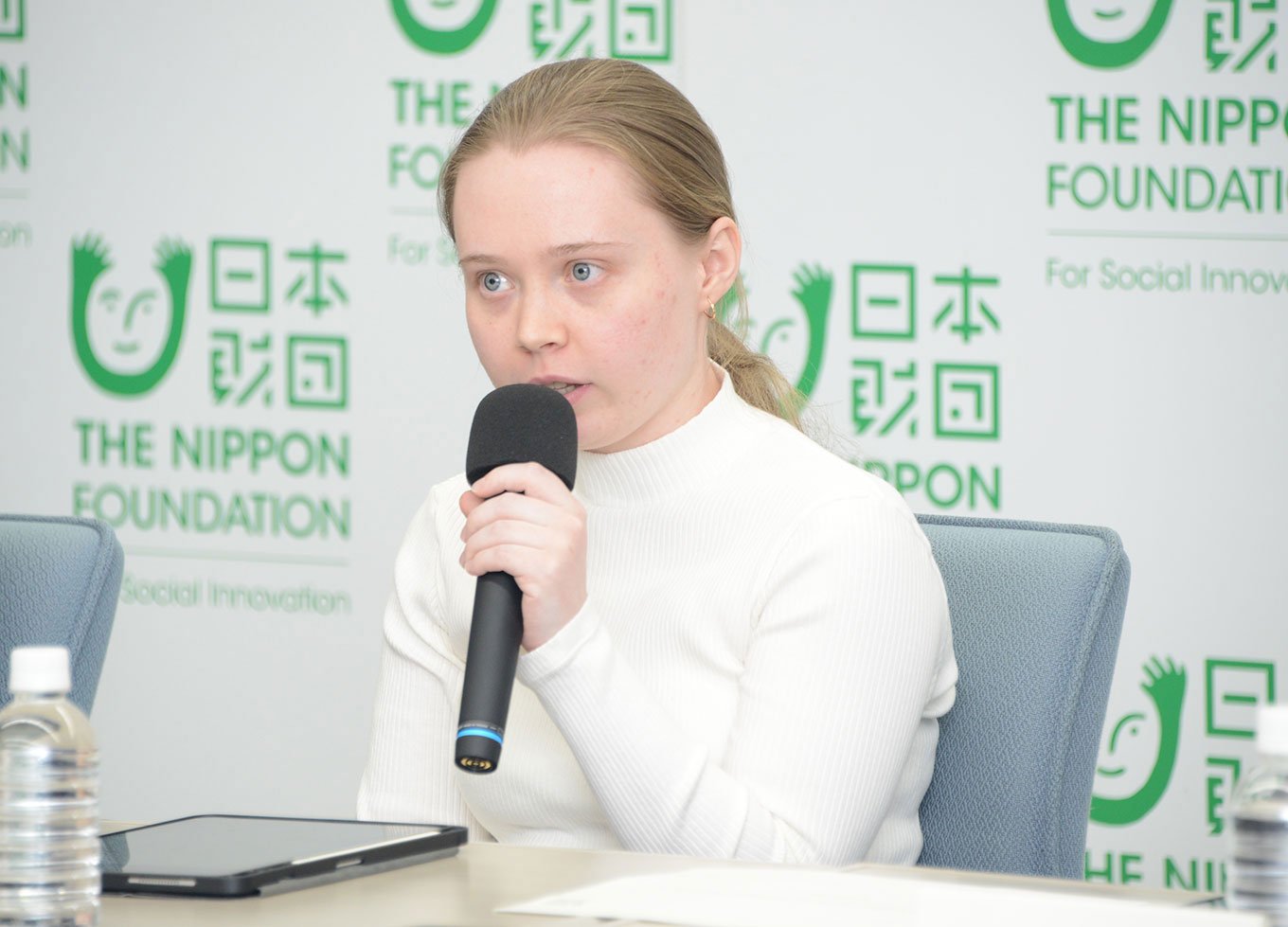
I am from Kyiv, and am an exchange student at a university in Fukuoka Prefecture, majoring in Japanese language. I plan to graduate in March and work at a logistics-related company from April.
I would like to tell you about my job-hunting experience. Thinking that understanding the Japanese labor market was important if I wanted to work at a Japanese company, I used what I had learned at university and proactively participated in internships and other programs. As a result, I became interested in the operations of a logistics department, and decided that I wanted to work in that field. Making applications and going to interviews was difficult, but I learned by making mistakes and taking advice from my teachers, and eventually received an informal job offer.
Looking ahead, I first want to acquire specialist knowledge through my work. I majored in linguistics, and next I want to build a career in logistics. I also want to participate in activities in Japan that let people know about the situation in Ukraine. I want to learn about and experience Japanese history, nature, and architecture while I am in Japan.
Viktoriia Shetliez-Virich
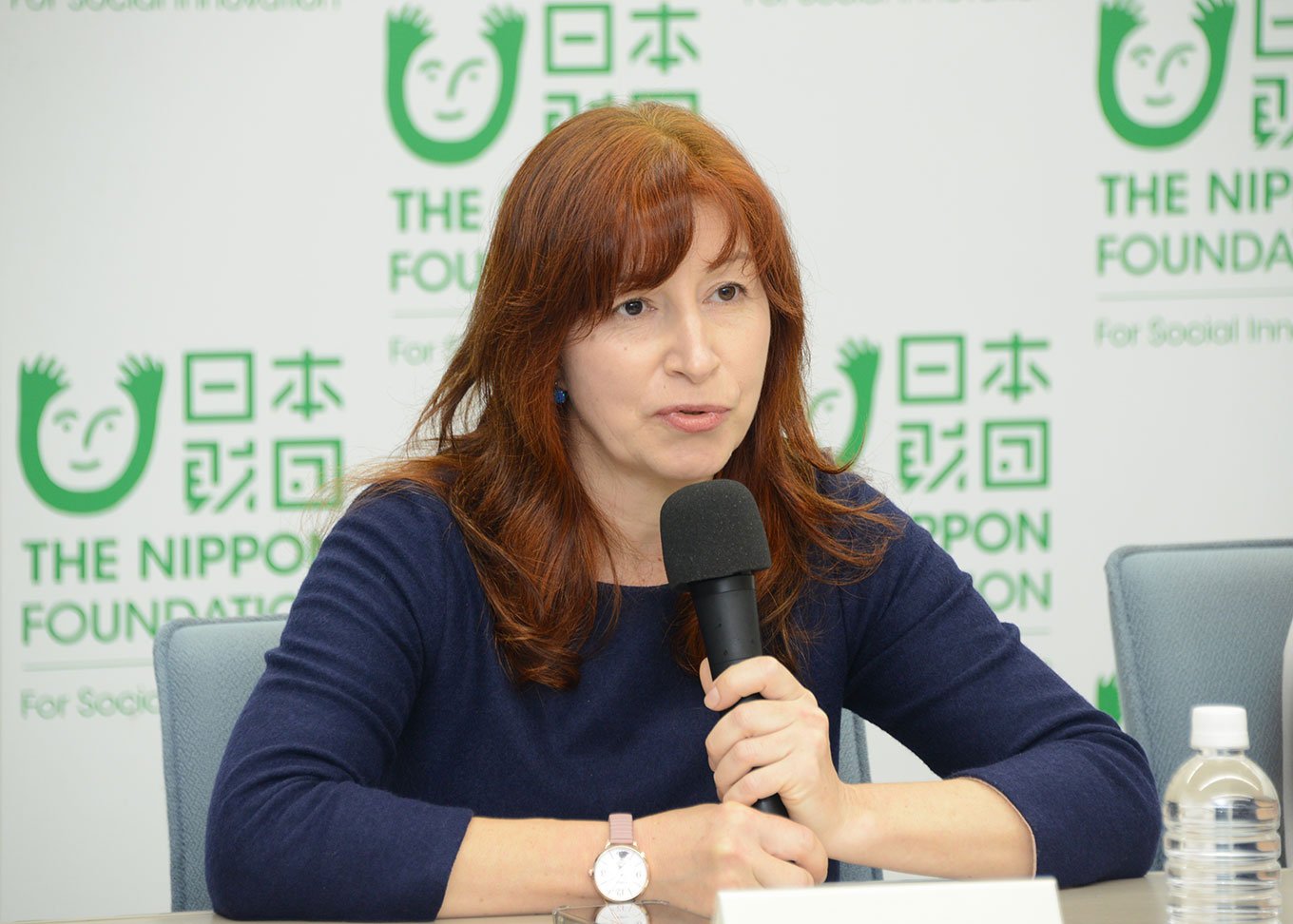
Before the Russian invasion, I had a business in Ukraine that specialized in tea. I’ve been interested in and learning about the Japanese tea ceremony for more than 10 years. When Russia invaded on February 24, 2022, however, my son and I evacuated to Poland and one month later we came to Japan on a charter flight.
From that very first day until today, we have been helped by many Japanese people. Initially, people in Kamakura helped us find a place to live, my son enroll in school, and me find a job. My son did not speak Japanese, but with the help of his teachers he steadily became able to participate in school life. He was able to pass the high school entrance exam and now attends a high school in Kanagawa Prefecture.
Later, we moved to Yokohama, where housing was provided to evacuees from Ukraine. Now I am working part time at a confectionary company. I had been studying Japanese on my own, and now am attending a Japanese language school with financial support from The Nippon Foundation, for which I am very grateful.
I have been lucky enough to be able to travel to various parts of Japan and learn about Japanese culture and traditions. My son plays basketball, and I participate in tea ceremony and theatrical activities. I am also involved with events held by the Ukrainian Embassy in Tokyo as a way of doing what I can to raise money to support Ukraine.
Related Link
Contact
Global Communications Team
The Nippon Foundation
- E-mail: info_global_communication@ps.nippon-foundation.or.jp
